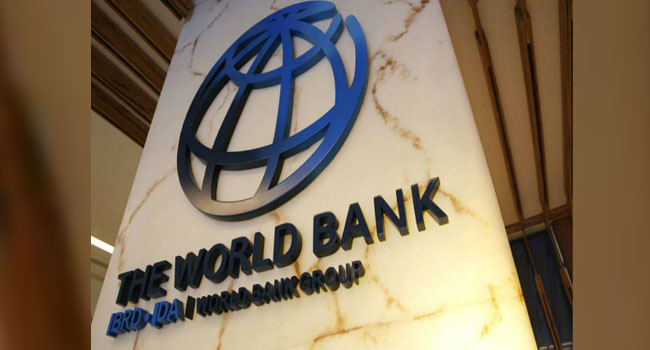World Bank Projects Nigeria’s Growth at 3.8% Amid Declining Inflation, Policy Easing

The World Bank has upgraded its 2025 growth forecast for Nigeria and other sub-Saharan African countries to 3.8 percent, citing stabilizing inflation and easing monetary policies that are beginning to support stronger economic activity across the region.
In its latest Africa Pulse Report released on Tuesday, the global lender said the upward revision from its previous 3.5 percent forecast in April reflects improving macroeconomic conditions in key economies such as Nigeria, Ethiopia, and Côte d’Ivoire.
According to the report, declining inflation rates have provided room for central banks, including the Central Bank of Nigeria (CBN), to ease monetary policy in order to stimulate growth.
Last month, the CBN reduced its benchmark interest rate from 27.5 percent to 27 percent, marking its first rate cut in nearly two years.
The World Bank noted that these developments are helping to boost real income growth and support domestic demand, which is expected to strengthen further over the next two years.
“While this marks a gradual recovery from a decade of successive shocks, the rebound has yet to gain strong momentum,” the report stated.
The institution attributed the positive outlook to a combination of exchange rate stability, easing inflationary pressures, and modest recovery in investment flows. It added that stronger agricultural output, improvements in power supply, and rising non-oil exports in some countries are also contributing to the recovery.
However, the Bank cautioned that risks remain, including fiscal pressures, security challenges, and potential climate shocks, which could undermine gains if not properly managed.
Economic analysts believe the World Bank’s optimism signals growing investor confidence in Nigeria’s reform-driven economy under President Bola Tinubu, whose administration has embarked on policies aimed at stabilizing the naira, improving revenue collection, and promoting private sector-led growth.
The report concluded that if current reforms and fiscal discipline are sustained, Nigeria’s medium-term growth prospects could strengthen further, laying the groundwork for a more resilient and inclusive economy across the sub-Saharan region.









